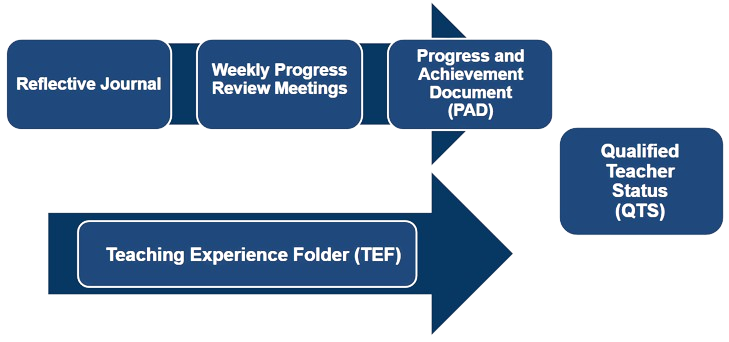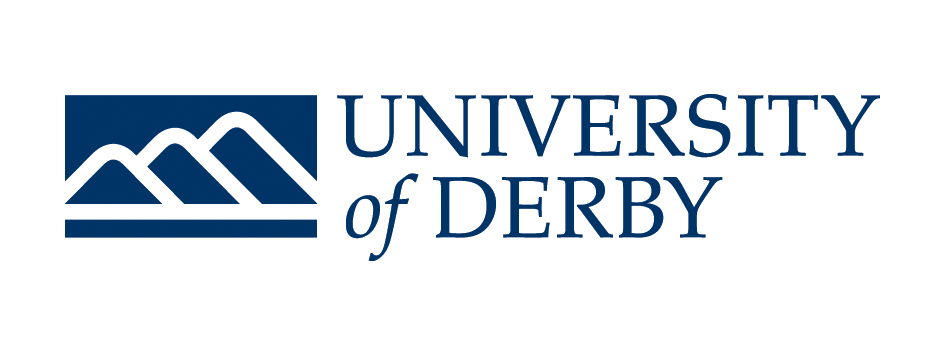Training to Teach FAQs
What are the entry requirements?
Trainee Teachers must have a UK honours undergraduate degree (or ENIC-verified equivalent) 2.2 or higher.
For secondary applications this should be in a relevant subject with at least 50% content of the subject you wish to teach. Applicants whose degree does not closely relate to the subject they wish to teach must have a strong A-level.
All must have Grade C/4 or above in GCSE English and Maths with the same needed in Science for Primary.
Trainee Teachers may also have to pass Maths and English Equivalency tests, dependent on their qualifications.
Edge Hill University Equivalency Test
Equivalency Testing
Good standards of written and spoken English are also essential.
Applicants with international qualifications must obtain an ENIC Statement of Comparability. This compares overseas qualifications to the UK education system, comparing them to UK qualifications and framework levels. International qualifications can vary, and we will be unable to progress an application if the degree equivalent is found to be that of an ordinary degree.
Do I need school experience?
It is desirable that applicants have suitable experience of working in a school setting, either on a voluntary or salaried basis, to confirm if teaching is a career for them. Such experience should include a range of year groups covering EYFS, KS1 and KS2 for Primary and KS3 and KS4 for Secondary.
The more experience an applicant can gain before applying for a place on the course, the greater the chance they will have of being successful as this will support their ability to give reflective examples at the interview stage.
You can gain experience through the School Experience Programme Portal
How do I develop my subject knowledge?

Not everyone feels confident in teaching every subject from the outset, for example, your degree might not be in your chosen subject but is closely related. As an Associate Teacher, you should identify parts of your subject knowledge you need to refresh or deepen.
Co-op Academies Trust has partnered with VidLEarn, the UKs leading The UK’s leading platform for Distance Learning Subject Knowledge Enhancement (SKE) courses, to offer bespoke courses in Physics, Chemistry, Mathematics, French, Spanish & Computer Science. These can be accessed through our partner webiste.
We will also provide free access to our online learning platform for every subject at both primary and secondary level, which will tailor learning around your needs prior to you starting.
Your training sessions at School and during your centre-based sessions will also assist here, but you are also expected to fill in gaps in your subject knowledge autonomously in order to be confident and competent in teaching accurately.
What is the interview process?
Following a successful application that meets our entry criteria, an interview will be arranged by Co-op Academies Trust which could be in person within a trust setting, or via an on-line platform.
The interview will include the following elements:
- A short pupil-based activity where we ask you to prepare a lesson walk through to discuss with the interview panel.
- A hidden task revealed during the interview
- A written task to assess your written communication skills
- A formal interview with staff from Co-op Academies Trust
- The interview panel may include a Professional mentor, Director of Curriculum, Head of Department or SLE.
Training with disabilities and other needs
It is the goal of Co-op Academies Trust to recruit people of outstanding potential, irrespective of their background or needs, and to ensure that the admission process is transparent, has minimal barriers to entry, is based on merit and potential, and is fair with regards to diversity.
Please contact us at teachertraining@coopacademies.co.uk if there is anything in particular you would like to discuss.
English Language Proficiency
In addition to a grade C at GCSE in English Language, applicants whose first language is not English are required to meet one of the following language requirements:
- International English Language Testing System (IELTS)
IELTS 6.5 overall, 6.5 in writing, no sub-section below 6.0 - Test of English as a Foreign Language (TOEFL)
TOEFL iBT overall score of 90 with a minimum score of 22 in writing and 20 in the other sub-sections - C2 Proficiency, formerly known as Cambridge English: Proficiency (CPE)
CPE overall score of 176 or above, with 176 in writing and no sub-section below 169.
English language test validity
Some English Language test results are only valid for two years. Your English Language test report must be valid on the start date of the course.
How do I become a Qualified Teacher?
The award of Qualified Teacher Status (QTS) is given based on how well you have met each of the Teacher Standards by the end of your ITT Year.
Trainee teacher development is supported during the ITT year through training, classroom experience, professional dialogue and self-reflection. Trainees are not asked to create evidence files as we believe, over the course of the programme, trainee teachers will naturally acquire evidence of their development from a range of sources to substantiate each of the standards. Our approach to evidence gathering is designed to reduce workload and to be meaningful to the trainee.
Gaining Qualified Teacher Status (QTS) allows you to teach in the UK or abroad.
How am I assessed?
Trainee teacher development is supported during the ITT year through training, classroom experience, professional dialogue and self-reflection. Over the course of the programme, trainee teachers will naturally acquire evidence of their development from a range of sources. Our approach to evidence gathering is designed to reduce workload and to be meaningful to the trainee. Much of this will be uploaded to the Teaching Experience Folder (TEF) or recorded in The Reflective Journal as a normal part of the ITT year.
Trainee teacher progress is monitored very closely and regularly assessed against our ITT Curriculum. A Weekly Progress Review with your mentor is a time for each trainee teacher to reflect on their progress across the week. We ask trainees to lead the conversation with a reflection on what they have learnt in their centre-based learning and how they have explored and applied this knowledge within the classroom.
This is followed by the Mentor’s comments on trainee progress and pupil learning. Targets are reviewed, set each week and should align with the ITT Curriculum so that the trainee can apply their learning. These are set each week – this should be a shared process.
Your teaching will be observed by your school-based mentor and during each placement you will also have at least one joint observation with your professional mentor and one joint observation with the programme Lead. These are the people who will be available to support and mentor you throughout your training.
Throughout each placement, trainee teachers will work with their mentors to complete the Progression and Achievement Document (PAD) which is a live document that demonstrates their progress against the core development areas of the ITT Curriculum. This comprises interim and summative reviews, reflecting on the areas of the curriculum and calling upon evidence from the Teaching Experience Folder (TEF). Successful monitoring throughout the year leads to Co-op Academies Trust recommending the award of Qualified Teacher Status (QTS).

For the PGCE element, we work closely with The University of Derby whose programme is fresh, relevant, and does well to support all trainees in embedding their centre-based learning into their school-based practice. Their discreet PGCE team is on hand through their streamlined registration process and continues with their lecturer team coming to deliver face-to-face sessions in Manchester at the start of every module.
All trainees will have access to all the university’s services and facilities such as well-being, the virtual VLE, library etc. The programme comprises three course units, each with a 4000-word assignment. All three course units are worth 20 credits, giving a total of 60 credits at postgraduate Master’s level.
What does the PGCE Element involve?

We partner with The University of Derby for our PGCE element.
They strive for excellence through their high expectations from recruitment, through training, and into employment to empower the future generations of teachers. The University of Derby is rated GOLD in the recent Teaching Excellence Framework (TEF) outcomes released in September 2023, placing the university in the top 20% of universities in the country.
Our PGCE programme is a blended model with the university providing a lecturer team who comes to Manchester to host face-to-face sessions at the start of each of the three modules.
Autumn Term: Education Learning Theories and Philosophy
Trainee Teachers will critically analyse and interpret the ways in which theories of teaching, learning and communication influence educational practice to help them generate innovative ideas to improve the learning experience, promote positive behaviour for learning and support pupils in maximising their potential.
4000-word essay which explores the use of critical incidents in education and reflection models
(20 master's credits)
Spring Term: Engaging and Motivating Diverse Learners - Understanding Behaviour
Trainee Teachers will engage critically with theories, principles and models of pupil behaviour; to critically evaluate pedagogical choices in their subject discipline that will engage and motivate learners. This is predicated upon a secure understanding of the diversity of learners’ needs and impactful adaptive approaches.
4000-word critically annotated bibliography, where trainee teachers select a group of diverse learners and analyse 6 peer-reviewed journal articles relating to their group of learners
(20 master's credits)
Summer Term: Developing Subject Leadership
Trainee Teachers will engage critically with different models of curriculum; to critically evaluate curricular and pedagogical choices in their phase that will both engage and motivate learners whilst maximising pupil potential.
4000-word (equivalent) a critical academic poster and presentation that outlines an innovative scheme of learning
(20 master's credits)